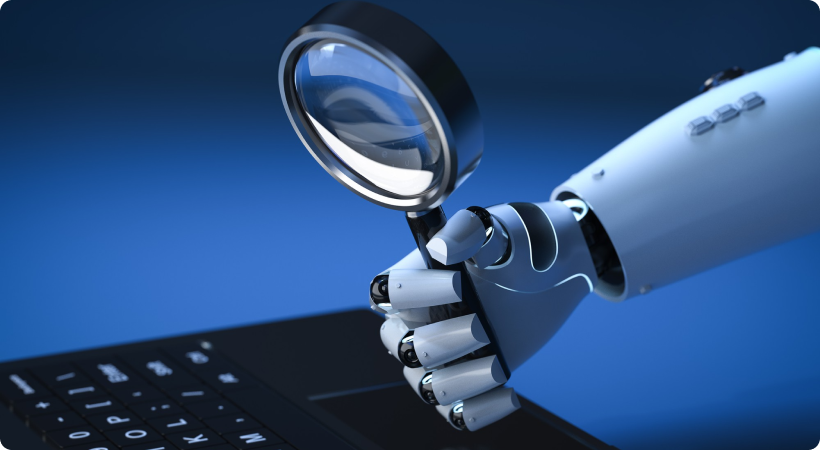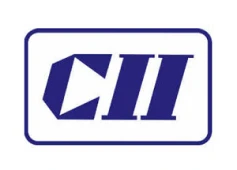Introduction: The Panic Around AI Content
Not too long ago, marketers, SEOs, and business owners were convinced that AI-generated content would destroy SEO rankings. People feared Google would start penalizing AI-written blogs, visibility would tank, and human-created content would be the only way to compete.
But in 2025, the reality looks very different. AI hasn’t killed SEO but shaping it. In fact, a large-scale study analyzing 600,000 pages found that 86.5% of top-ranking pages already use some level of AI-assisted content.
The real question is no longer whether AI hurts your SEO. The real question is:
How do you use AI in a way that helps your rankings instead of harming them?
That’s exactly what we’re exploring in this blog. As a website development company, we see where businesses succeed and fail with AI-driven content. Using real research, industry insights, and case studies, let’s break down what actually works in 2025.
The Biggest Myth About AI and SEO
For years, the loudest fear has been this: “Google penalizes AI-generated content.” It sounds believable. But the data says otherwise. According to a SEMrush study of over 20,000 blog articles, there’s almost no performance difference between AI-generated and human-written content:
57% of AI-generated articles rank in the top 10 search results
58% of human-written articles rank in the top 10
That’s just a 1% gap
This tells us one thing: AI is not the problem. The real differentiator is strategy.
When you simply generate content with no editing, optimization, or expertise, you are simply using it carelessly. This is when rankings could suffer. But when AI supports well-planned SEO strategies and research, it performs just as well as (and sometimes better than) human-written blogs.

Source: Semrush AI Content Study, 2025
The SE Ranking Experiment: When AI Wins and Fails
The clearest evidence of AI’s strengths and weaknesses comes from SE Ranking’s two-part experiment. The findings perfectly illustrate why how you implement AI matters more than the tool itself.
Part 1: When AI + Human Editing Wins
SE Ranking published six AI-assisted articles on its established blog. Instead of hitting publish immediately, each article went through human editing, fact-checking, and SEO optimization. The results were checked across six articles. And the stats that they pulled is quite impressive.
555,000+ impressions
Over 2,300 clicks
50% of the articles ranked in the top 10
83% of the content in these articles triggered Google’s AI Overviews
Part 2: When Pure AI Fails Miserably
To test the opposite approach, SE Ranking created 2,000 AI-generated articles across 20 brand-new websites. No editing. No optimization. No backlinks or promotion. At first, the results looked promising:
122,000 impressions in the first month
Several sites ranked for 1,000+ keywords
But within three months, everything collapsed.
By February 2025, none of the pages ranked in Google’s top 100
Traffic dropped to nearly zero
The sites were effectively algorithmically filtered out
The lesson? AI can’t replace strategy, credibility, and human judgment.

Source: SE Ranking AI Content Experiment, 2025
Two Schools of Thought on AI in SEO
Among industry leaders, there’s no single approach to AI-generated content. Instead, there are two schools of thought. It is important to understand both these ideas to be able to actually define your SEO strategy.
School 1: AI as a Strategic Enabler
This perspective treats AI as a powerful scaling tool. Businesses here leverage AI for creating the first drafts.
Drafting outlines
Structuring research
Speeding up keyword clustering
Producing first drafts
Humans then refine the content, ensuring accuracy, injecting brand voice, and adding unique perspectives. This hybrid approach is backed by data. In SE Ranking’s experiment, AI-assisted content on an established domain drove over half a million impressions and ranked in the top 10 for 50% of the articles. When AI supports expertise instead of replacing it, SEO thrives.
School 2: AI as a Supporting Tool, Not the Writer
Others take a more cautious stance. While they use AI for efficiency, they warn against depending on it for complete content creation. Why? Because Google rewards content that demonstrates credibility, expertise, and experience. That’s where the E-E-A-T framework comes in: Experience, Expertise, Authoritativeness, and Trustworthiness. Pure AI-generated content struggles here.
It lacks firsthand experience and fails to build trust signals, which is why SE Ranking’s pure AI experiment failed despite strong early performance. For businesses in competitive industries, this means one thing: AI should assist humans, not replace them.

Source: Industry Insights via Semrush & Smarty Marketing, 2025
Our Winning Formula for AI-Driven SEO
After reviewing multiple studies, one thing is undeniable: The hybrid AI + human approach dominates SEO in 2025. And here’s an important reminder: Google has been clear about what it values. It’s not who writes your content — it’s whether your content demonstrates Experience, Expertise, Authoritativeness, and Trustworthiness (E-E-A-T).
This is where hybrid content shines. Across 600,000 analyzed pages, 81.9% of top-ranking results used AI-assisted drafts polished by human editors, while only 4.6% relied on purely AI-generated blogs.
The Four-Step Formula for SEO Success with AI
Step 1: Use AI for structure, research, and drafting
Step 2: Add human editing and insights
Step 3: Build authority through optimization and backlinks
Step 4: Align with Google’s E-E-A-T framework
Final Verdict: AI Isn’t the Threat, Bad Strategy Is
AI-generated content doesn’t hurt SEO. But badly executed strategies do. When AI is used as a shortcut for volume over value, rankings collapse. But when AI supports human creativity, expertise, and brand storytelling, it becomes one of the most powerful tools in your SEO arsenal.
At our website development company, we help businesses integrate AI intelligently — creating content strategies that work with Google’s algorithms, not against them. AI isn’t replacing human creativity. It’s amplifying it.
From the lens of a Website Development Company
We are a website development company in Chennai, that works with global brands. This means we work with different guidelines, cultural needs, and variations in business goals. And, we see AI as a tool that can make content strategies smarter and more resource efficient. By using AI for planning, research, and structuring drafts, we reduce wasted effort, avoid duplicate pages, and create cleaner, more organized websites that require fewer revisions over time.
That said, our core principle, sustainability, also means being intentional. AI tools still consume energy through data processing, and publishing too much low-value content can increase server load, storage needs, and overall digital waste. This is where the AI + human hybrid approach becomes essential. Instead of churning out hundreds of one-click articles, AI helps us work faster, while human editors ensure depth, credibility, and relevance.
The result is fewer but higher-quality pages that deliver lasting value, perform better in search, and reduce unnecessary environmental overhead. By prioritizing quality over quantity, we create digital strategies that are efficient, sustainable, and built to last — both for rankings and for the planet.
Ready to rebuild a smarter, more sustainable website?





